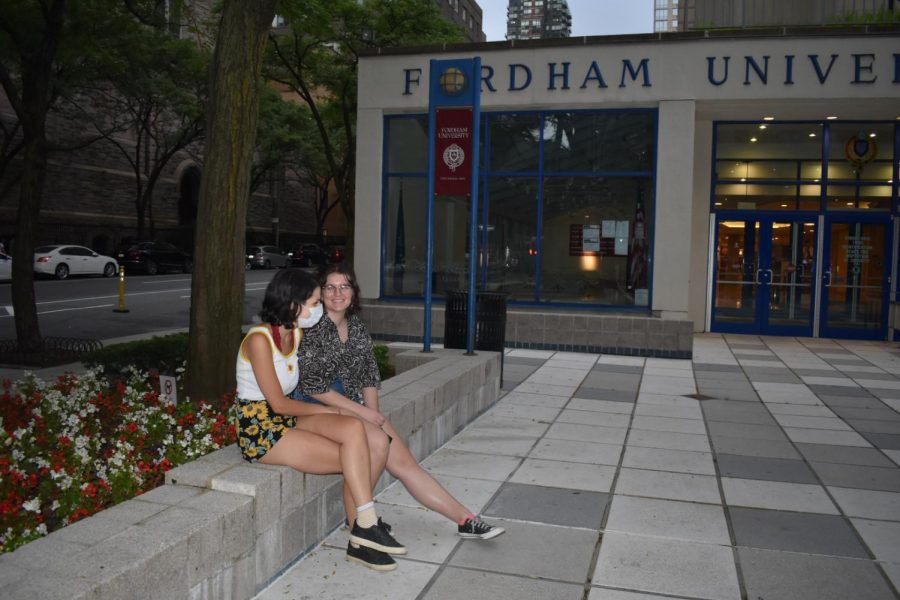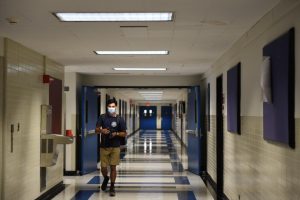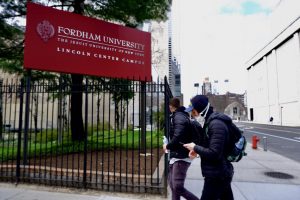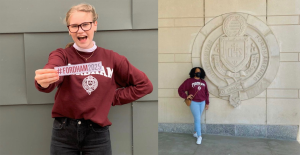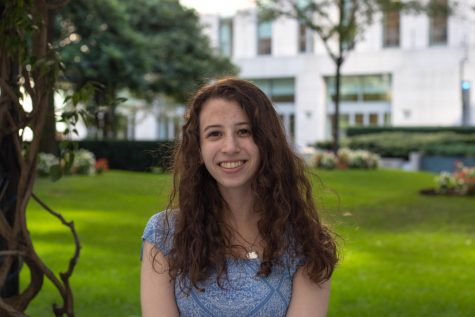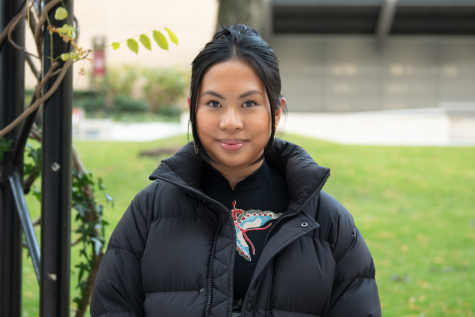New Year, Same Rules: Mask Mandate Reinstalled
The university outlines rules and regulations for unvaccinated members of the Fordham community
Students sit at Lincoln Center with the option to not wear masks outdoors.
August 31, 2021
Following a summer of reversals in decisions regarding the use of masks on campus, the university reinstated the mask mandate on Aug. 19. All individuals are required to wear masks in public indoor spaces.
Fordham originally planned to not require masks when they announced a fully in-person fall semester and required proof of vaccination to enter campus. Due to rising cases from the Delta variant, the university overturned its decision on the mask mandate.
All students, faculty and employees are required to be fully vaccinated upon their arrival to campus, including international students.
The university considers individuals who have received their second dose to be fully vaccinated after the two-week period following their second dose has passed. Any individual deemed unvaccinated will need to continue uploading weekly negative antigen test results until they are fully vaccinated.
Keith Eldredge, dean of student services and assistant vice president, spoke on behalf of COVID-19 Coordinator and Vice President Marco Valera and Director of University Health Services Maureen Keown regarding newly implemented guidelines, policies and statistics gathered by the university.
Increasing Vaccination Rates
The university released statistics of vaccination rates among undergraduate and graduate students and employees. As of Aug. 23, the current vaccination rate of students was 83% university-wide and 89% for undergraduates. Additionally, 95% of full-time employees are vaccinated. The vaccination rate for part-time employees is currently unknown.
Unlike undergraduate students, graduate students have the ability to enroll in virtual classes and opt out of returning to campus, which can lower the overall vaccination rate.
The vaccination rate for employees has not yet been calculated.
The vaccination rate at Fordham is expected to rise to 99% before Sept. 1, the start of the academic year, according to Eldredge.
“Despite all of our communications, some college students do things at the last minute, and we have seen the compliance rate increase by about 10% each week in the past 2 weeks, so we think we are on track for when classes begin next week,” he said.
The vaccination rate at Fordham is expected to rise to 99% before Sept. 1, the start of the academic year, according to Eldredge.
He also emphasized the university’s expectation that less than 1% of requested vaccine exemptions will be granted.
“We expect that students will adhere to the guidelines and expectations, and staff will contact Public Safety for support if needed.” Keith Eldredge, dean of student services and assistant vice president
Prohibited Spaces for Unvaccinated Individuals
Eldredge said that only students with VitalChecks that are “Marked as Vaccinated” will be able to enter certain indoor facilities.
Unvaccinated individuals at Fordham will be required to follow guidelines enforced by the New York City Department of Health and the Centers for Disease Control and Prevention (CDC), such as the barring of unvaccinated individuals from indoor spaces such as dining rooms, fitness centers, and entertainment and performance facilities.
Even if they have received a medical or religious accommodation from the university, unvaccinated individuals must follow these guidelines.
“We expect that students will adhere to the guidelines and expectations, and staff will contact Public Safety for support if needed,” Eldredge said.
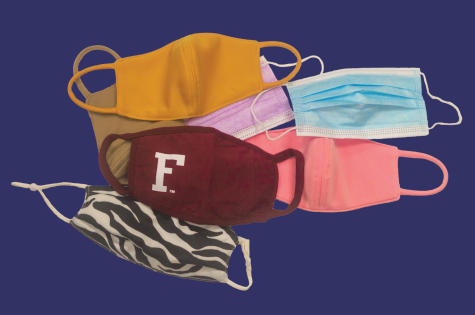
Switching to Rapid Antigen Testing
The university switched to providing rapid antigen testing on June 18, as opposed to the PCR testing administered to all students in the last academic year.
“Although the company we used for PCR testing last academic year would usually provide the results within 48 hours, an asymptomatic student would remain in the population potentially exposing other students until they received the results,” Eldredge said. “If a student tests positive on an antigen test, we can take the appropriate action, including isolation, immediately.”
Eldredge said in order to mitigate the risk of producing false negatives, the university is requiring weekly rapid tests for unvaccinated and partially vaccinated students.
Antigen testing is known for its rapid results, though it has also been known to yield a high rate of false negatives (a result that states an individual is COVID-19 negative even though they are COVID-19 positive).
Unlike antigen testing, PCR testing takes 48 hours to provide an accurate result. However, people may still test positive for COVID-19 long after their recovery.
“The virus can be found by PCR testing for several weeks, even longer than the time that they are actually contagious to other people, resulting in ‘false positives,’ but that is not the case with antigen tests which will help identify people who are currently contagious to others,” Eldredge said.
There is no COVID-19 testing requirement to enter campus like last year, though Fordham has contingency plans in place in case an outbreak occurs.

